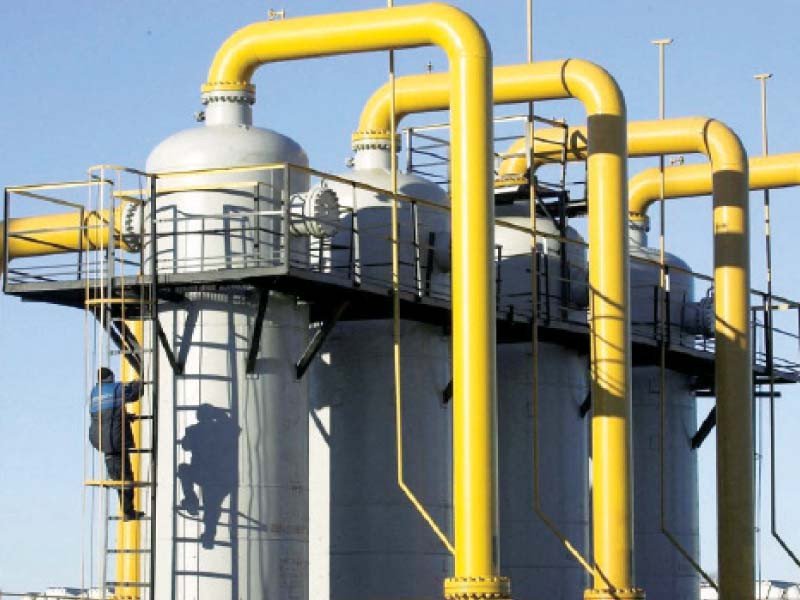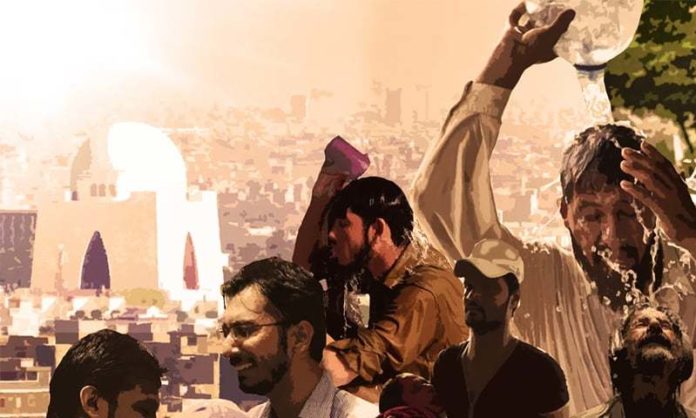Dear Readers,
The advent of summer heralds the arrival of two phenomena heat wave and load shedding, a combination of the two can be deadly. At the end of March, the weather turned exceedingly hot and humid, on cue Karachi started experiencing prolonged and recurring power outages. As demand for power spiked, a sudden ‘dispute’ erupted over provision of natural gas by Sui Southern Gas Company Limited (SSGC) to K-Electric (KE). This led to a very public and rather pathetic spat between the two, each blaming the other. The Sindh Chief Minister stepped in and requested the Prime Minister to resolve the matter, SSGC being a semi-govt organisation. The matter appeared to have been almost resolved but as temperatures soared once again and demand for electricity surged, a power crisis ensued and KE again resorted to unannounced load shedding that lasted for 10 to 12 hours in many localities. With Ramadan just around the corner people fear the worst, last year during Ramadan Karachi was particularly affected with power outages, even during Sehri and Iftar times. In late June 2015, when Ramadan had just started, a brutal heat wave killed more than 1200 people in Karachi, prolonged electricity shortages and chronic water shortages exacerbated the situation. More than 10000 people were treated for dehydration. Ramadan will soon be upon us, with excessive load shedding of power and rising temperatures a daily occurrence, should we expect the worst? For the benefit of readers I am reproducing my article titled ‘HOLDING KARACHI’S CITIZENS HOSTAGE’.
With supply of gas from Sui Southern Gas Company Limited (SSGC) to the metropolis’ power utility, K-Electric (KE) far below that is required to run the KEIS gas-fired power plants, consumers across Karachi city are suffering from additional load-shedding. The SSGC and KE stalemate has resulted in a power shortfall of around 500MW which started 10 days ago and continues without any sign of solution.
SSGC initially denied that there had been any reduction in the gas supply to KE. Reports were then circulated that facing a shortage of gas supply from different fields SSGC was unable to meet the demands of existing customers. In reality SSGC has a different problem with KE, claiming that KE was not making payments for the gas being supplied. On the other hand KE gave proof of making regular payments of its monthly gas bills, the capital amount being payable was not in dispute, the interest amounting of Rs.60bn was. In a letter to the Commissioner Karachi, SSGC made a conditional offer to increase the gas supply if KE agreed (1) to settle its arrears (2) sign a Gas Supply Agreement (GSA) and (3) pay a security deposit. For its part KE claimed that the amount payable to SSGC was only Rs.13.7 bn whereas the rest of the amount was Rs.60bn arrears as interest and late payment surcharge both sub-judice without KE’s having the requisite gas to run its gas-base± the shortfall of about 500MW will continue.
Unfortunately for the citizens of Karachi, SSGC has chosen the hot weather crisis to push through its own selfish agenda with KE. Possibly Shanghai Electric Power (SEP) proposed taking over KE was another consideration. No thought was given as to the ramifications of load shed for the city’s industrial capacity causing losses amounting to billions, obviously the resulting unemployment does not concern SSGC. Karachi Chamber of Commerce and Industry (KCCI), Bin Qasim Association of Trade and Industry (BQATI), etc. have raised the alarm. Industry analysts suggest the revisiting of the “Gas Load Management Policy” by working out a solution to allocate gas supply from least priority sectors such as CNG sector to Power sector which comes second on the priority list.
Committed to resolve this ongoing row so that the people of the city do not continue suffering because of the sweltering weather, Sindh Chief Minister Murad Ali Shah summoned officials from both KE and SSGC over the weekend, categorically stating that he would not allow them to punish the people of the city due to their disputes. In a bold and welcome move CM Murad not only gave both sides an ultimatum to find a solution but also sought immediate intervention of PM Khaqan Abbasi to resolve issues between SSGC and KE to provide some relief to citizens and businesses in Karachi. A second letter from the CM to the PM within 10 days highlighted the urgency of providing relief to the city’s people from load-shedding.
According to the CM, SSGC has offered “in the public interest” to increase the volume of gas supply to the KE through the gas management plan, provided the electric supply company pays security deposit, resolves outstanding payment issue and signs a GSA (gas supply agreement). KE on the other hand has committed to providing security deposit and showed readiness to sign the GSA on mutually agreed terms. In an emergency board meeting on Sunday the SSGC reportedly approved supply of 120mmcfd (million cubic feet per day) gas to the KE upon furnishing Rs.6 billion security deposit, equivalent to three-month average bill of 150mmcfd gas supply and signing of mutually agreed terms of reference for the appointment of an independent chartered accountant firm. On its part KE maintains that payment of mark-up/ late payment surcharge to the SSGC is a complex matter and in turn, involves recovery of outstanding electricity dues from the Federal Government (tariff differential subsidy) and other strategic bulk consumers. According to the CM’S letter, a Committee has been recommended to be constituted comprising representatives of the Federal and Provincial governments, SSGC and KE to sort out the outstanding issues.

SSGC refusing to increase the gas supply to KE given the rising power generation requirements over the matter of dues sets an alarming and dangerous precedent having graver implication that is simply not acceptable. This mode for recovering among public sector/ semi-public sector entities has not only many ramifications but complications in the future for both all stakeholders involved and the public at large. This precedent might see PSO cutting the fuel supply of PIA on account of PKR 26 billion dues or ceasing supplies to Sui Northern Gas Pipelines (SNGPL), the main supplier of re-gasified liquefied natural gas in the country which owes PSO at least Rs.28 billion or allow KE to disconnect the power supply of KWSB due to PKR 32 billion dues going forward. For its part SSGC owes PPL and OGDCL amounts to the tune of PKR 112 Billion. Should these companies also curb gas supplies to SSGC, we will then have city (and a country) without gas, power and water. Does the management of SSGC want to hold Karachi’s citizens to ransom?
Who can forget the many deaths in Karachi and Sindh due to heatstroke in the past two years? Silence or indifference on the subject by the country’s leader-ship consisting political representatives, government and administration will exacerbate the sufferings of the citizens who are already in misery the economic activity which is being disrupted has its own cyclical impact. Limited production by industrial units of Karachi will affect the overall economic performance of the country by further plunging the exports and trimming supplies in the local markets, this will raise the levels of poverty and unemployment.
Better sense must prevail and the power supply to Karachi city must be restored. Companies in the public domain must ethically never be allowed to use “dues and receivables” as an excuse to hamper the provision of essential services and utilities to the citizens. At the moment SSGC is holding the citizens of Karachi hostage to pursue its own selfish objectives. Militants of the MQM were holding Karachi to ransom, after the militants is this a new way to blackmail Karachi citizens? To drag us back to the dark 2000-2010 years full of turmoil for old times’ sake, on what motivation? For humanitarian considerations if nothing else, some gas supply must be restored immediately while an empowered Committee must resolve this dispute without further delay.
“The opinions/views expressed in Defence Journal are entirely those of the writers and cannot be construed to reflect the official views of Defence Journal”.




